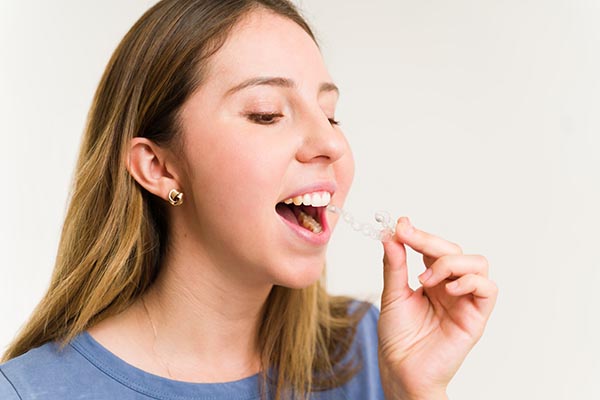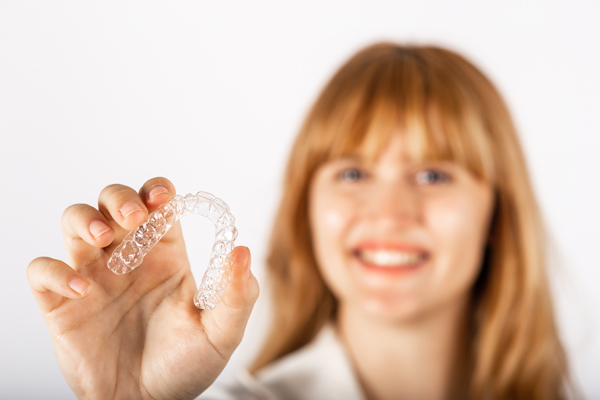 The orthodontist assists patients of all ages in achieving healthy smiles with orthodontic treatment at the dental office. Orthodontic issues are prevalent because only a few people are born with picture-perfect teeth. But why is that the case? This article digs into this issue and throws a bit of light on the common causes of orthodontic problems.
The orthodontist assists patients of all ages in achieving healthy smiles with orthodontic treatment at the dental office. Orthodontic issues are prevalent because only a few people are born with picture-perfect teeth. But why is that the case? This article digs into this issue and throws a bit of light on the common causes of orthodontic problems.
The causes of orthodontic issues
Most people acquire some sort of orthodontic malocclusion or "poor bite" in their lifetime, whether it is crooked teeth or an underbite. While the reasons for orthodontic issues differ from person to person, these are a few prevalent causes.
Genetics
This is perhaps the most common cause of orthodontic issues. Since the modern human mouths are smaller than those of the evolutionary forefathers, not everyone will have enough space on the dental arch to fit all 32 teeth properly. As a result, most people's teeth grow somewhat misaligned, and wisdom teeth are no exception. While many people have naturally straight teeth, the majority are genetically inclined to have crooked teeth.
Bad habits during childhood
Malocclusions can also be caused by childhood behaviors, like tongue-thrusting and extended thumb sucking. These practices lead the front teeth to slant forward due to external pressure. Over time, this tilting may grow so severe that it results in an open bite, a malocclusion in which the upper and lower front teeth do not touch when the mouth is closed.
Premature loss of baby teeth
A child’s dental development can influence crooked teeth. Since baby teeth act as guides for the eruption of adult teeth, if one falls out too soon, the surrounding teeth may drift into the space, causing the adult teeth to erupt misaligned.
The importance of treatment
Cleaning and maintaining crooked and crowded teeth are difficult. Tooth decay, gum disease, and tooth loss can all be exacerbated by such issues. A poor bite can also lead to uneven tooth wear, difficulties eating and speaking, increased stress on the supporting bones and gum tissue, and potential jaw joint issues.
There is also the psychological impact of an unappealing smile. A patient’s self-esteem decreases when they do not feel good about their appearance. Children and adults with untreated malocclusions may feel self-conscious throughout their lives, concealing their mouths.
Finally, many issues will worsen if they are not treated. Treatment from an orthodontist to fix a problem may be less expensive than the extra dental care needed to tackle more significant issues that may arise later. The earlier that the interventive treatment starts, the better.
Book an appointment today
The orthodontist will be happy to address any questions that you may have when you visit the office. If you would like to learn more about orthodontic issues or the recommended treatment solutions, please contact the dental office to book an appointment for a consultation. The dental professional can also assist you if you have crooked teeth that you would like to straighten.
Request an appointment or call Valley Ranch Orthodontics at 972-200-1016 for an appointment in our Irving office.
Related Posts
An orthodontist specializes in malocclusions, or dental misalignments, that affect the jawbone, teeth, or facial symmetry. If a dentist recommended you or your child for this dental specialist, you may wonder what to expect at the first appointment. While it is a relatively simple process, there are some differences in how the orthodontist and their…
Early interceptive therapy, also known as phase 1 orthodontics, is performed by a kids orthodontics and deals with the application of growth appliances, expanders, or partial braces, pending the complete eruption of the patient’s adult teeth. Phase one treatment is usually recommended for children when they are between 7 and 11 years old. The treatment…
Children who suffer from misaligned teeth and visit an orthodontist to help correct the problem may be fitted with dental headgear. There can be several reasons why this may be recommended, such as for the correction of protruding front teeth or irregular jaw growth. Parents who are told a child will require headgear may wonder…


